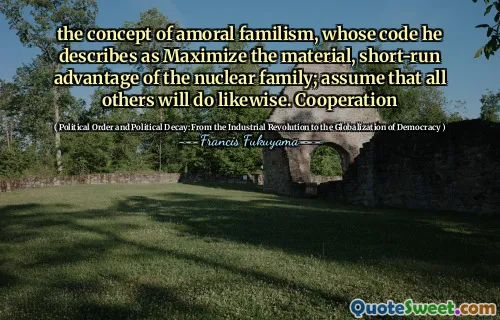"Political Order and Political Decay," authored by Francis Fukuyama, explores the evolution of political institutions from the Industrial Revolution to contemporary times. Fukuyama argues that the stability of political order is essential for a functioning society and that various factors, including economic development, cultural traditions, and the historical context, profoundly influence political structures. He emphasizes the role of strong institutions in promoting legitimacy and effectiveness in governance.
The book divides its discourse into two main themes: the processes that lead to political order and those that result in political decay. Fukuyama highlights how societies can develop effective political frameworks through revolutions or gradual progress. However, he cautions that once established, these institutions can also weaken over time due to corruption, lack of accountability, and disconnect from societal needs, signaling a decline in political order.
Fukuyama’s analysis extends to the current landscape of globalization and its impact on democracy. He acknowledges that globalization brings challenges such as the erosion of state sovereignty and an increase in inequality. Ultimately, Fukuyama calls for a reevaluation of political institutions globally, advocating for reforms that strengthen governance, enhance public trust, and adapt to the changing political landscape to foster a more resilient democratic order.
More »
Today Birthdays
1729 -
Edmund Burke
1949 -
Haruki Murakami
1954 -
Howard Stern
1876 -
Jack London
1993 -
Zayn Malik
1951 -
Kirstie Alley
1863 -
Swami Vivekananda
1923 -
Alice Miller
1987 -
Naya Rivera
1825 -
Brooke Foss Westcott
1944 -
Joe Frazier
1951 -
Rush Limbaugh
1964 -
Jeff Bezos
1978 -
Jeremy Camp
1628 -
Charles Perrault
1856 -
John Singer Sargent
1970 -
Kaja Foglio
1953 -
Rick Santelli
1986 -
Gemma Arterton
1968 -
Raf Simons
1958 -
Christiane Amanpour
1966 -
Olivier Martinez
1996 -
Ella Henderson
1917 -
Maharishi Mahesh Yogi
1949 -
Ottmar Hitzfeld
1928 -
Ruth Brown
1968 -
Heather Mills
1946 -
George Duke
1968 -
Rachael Harris
1923 -
Ira Hayes
